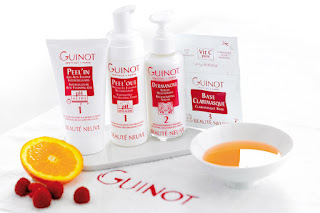Summer Newsletter 2016
Sun damage can lead to premature aging of the skin, wrinkles, marks, dry
skin, and even skin cancer over time. The hottest season of the year requires
careful thought for your skin even as you enjoy the heat and freedom of summer.
Understand
how the summer sun impacts your skin
Ultraviolet
A (UVA): The longest wavelength of the sun,
this one penetrates the dermis, your skin's deepest layer.
Stay
out of the sun between the hrs of 10 and 3pm the hottest part of the day during the summer
Wear protective clothing . A lot of clothing in outdoor stores and fashion stores has a UV protection
Wear protective clothing . A lot of clothing in outdoor stores and fashion stores has a UV protection
·
Wear a hat. Your facial skin will benefit enormously from a permanent ring of
shade over it in the heat of the sun.
·
Wear sunglasses to protect your sensitive eye skin (and eyes). Eyes are prone to
melanomas and cataracts, and the sensitive skin around your eyes is prone to
fast aging.
Ditch the obsession with a tan. Sunbathing or using a solarium increases your chances of damaging your skin and getting skin cancers.
·
Be careful with fake
tan
·
Black skin is
vulnerable to sun damage too, your skin can be two shades darker during summer
than in winter
Give your skin a break. By watching the weather over summer, you can work out the days when you won't need to slather on the chemicals
Rinse
skin after swimming. This
is especially important when you've been swimming in chlorinated environments
as the chlorine can dry out your skin and for some people it
can even result in an allergic reaction.
Avoid
spraying perfume on your
skin in the sun. This can permanently stain your skin when they react
with the sun.
Eat
healthy foods. A healthy skin comes from eating well and summer is the
ideal time to make dietary changes for the better.
Examine
your skin regularly. At
least one a month, perform a "mole patrol" to check for signs of sun
damage on your skin. Be especially alert to moles that have changed shape or
size or that hurt, itch, or bleed.




Comments
Post a Comment